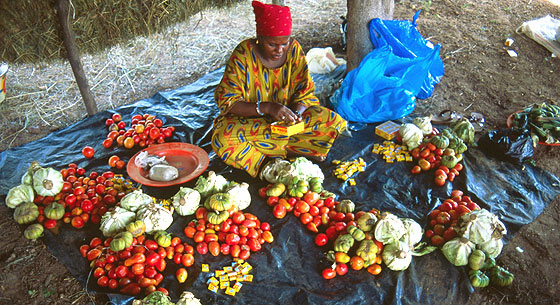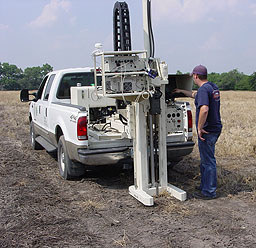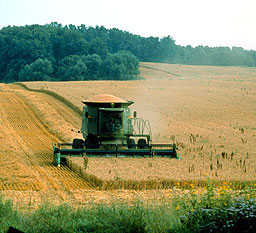To Fertilize – More with Less
Smart fertilizing benefits farming and the environment. The more people we feed, the more nutrients we remove from soils. Over time, we deplete the soil of nutrients and reduce crop yields. Farmers return nutrients to soils by planting legumes, and adding compost, manure, and mineral fertilizers. Adding too little lowers the yield of food, but adding too much pollutes air and water.
New technology helps manage soil fertility. Sensors mounted on tractors or linked to satellites “read” plants and soils to determine how much fertilizer is needed. Genetic techniques let scientists study soil food webs that are essential to soil fertility. Farmers are starting to combine new technology with traditional approaches to grow crops and sustain soil fertility.
Farmers face many challenges today, as they try to feed people and protect ecosystems. Farms of the future will need to combine ecologically sound techniques and new technologies to grow more crops with less nutrient loss to water and air. The right balance of technology and labor must be tailored to local soils, climates, and economies. Ecologically smart agriculture can profit both farmers and the environment.



